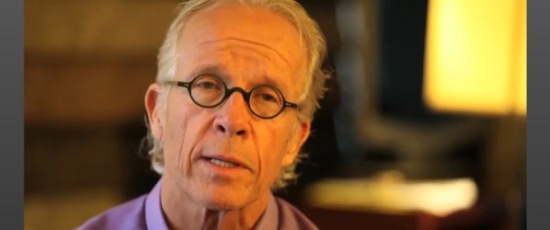
Nice try, Jeff: Minnesota's Church-suing attorney Anderson loses with junk science
Last Wednesday, the Minnesota Supreme Court flatly rejected the psychological theory of "repressed memory" as bogus. The Court declared that scientific studies that have tried to prove the bogus theory have "lacked foundational reliability."
Church-suing lawyers and accusers of abuse have attempted to use "repressed memory" as a way to circumvent statutes of limitations in order to file big-money lawsuits against the Catholic Church.
According to proponents of the discredited belief, some people completely forget instances of extreme trauma or abuse. Then, years or decades later, an event or thought – often directed by a convincing therapist – causes one to suddenly "remember" having been abused or traumatized.
In the case in Minnesota, an accuser – represented by high-profile, Church-suing attorney Jeff Anderson – tried to claim that his case of abuse against a Catholic priest should not be limited by the state's statute of limitations because he was simply unable to remember being abused because he "repressed" the memory of it happening. Fortunately, the Minnesota courts didn't buy it.
The theory of "repressed memory" is bizarre, indeed. The world's leading experts in memory have roundly debunked the wild theory.
- Dr. Richard J. McNally, Professor and Director of Clinical Training, Department of Psychology, Harvard University: "The notion that traumatic events can be repressed and later recovered is the most pernicious bit of folklore ever to infect psychology and psychiatry. It has provided the theoretical basis for 'recovered memory therapy' – the worst catastrophe to befall the mental health field since the lobotomy era."
- Dr. James McGaugh, University of California, Irvine: "I go on science, not fads. And there's absolutely no proof that it can happen. Zero. None. Niente. Nada. All my research says that strong emotional experiences leave emotionally strong memories. Being sexually molested would certainly qualify."
- Dr. Elizabeth Loftus, Professor of Psychology, University of California, Irvine: "You can't be raped for 10 years and not remember it. Yet, according to the repression aficionados, anything's possible."
- Dr. Paul McHugh, Chairman of the Psychiatry Department, Johns Hopkins University: "If penis envy made us look dumb, this will make us look totally gullible."
Yet one would hardly know from the media coverage over the past several years that "repressed memory" has been completely debunked and discredited. Journalists are reluctant to inform readers of any facts which would detract from the sensationalism of charges of sex abuse in the Catholic Church. When reporting on "repressed memory" cases against Catholic priests, journalists almost universally neglect to convey that the theory is scientific nonsense.
Once again, when the facts do not fit the accepted media narrative, the facts are ignored. Kudos to the Minnesota Supreme Court, however, for telling the story that the media will not.
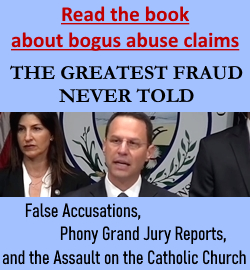

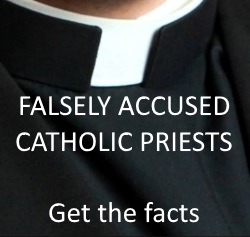
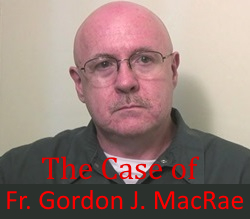
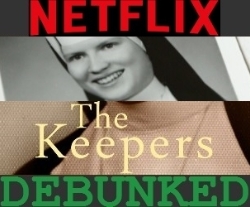
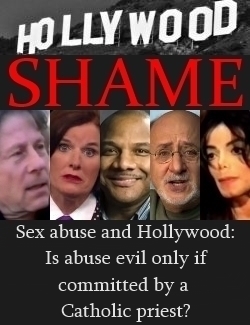
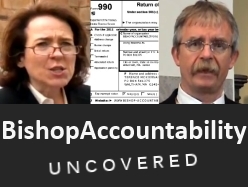
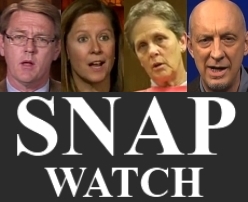
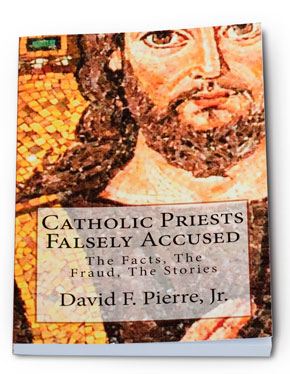
This theory was nonsense all along.
I wonder if any innocent men are in jail because of it.
I was a guitar teacher back in the 80's. One of my best students was a Naval officer nearing retirement. One day he came to his lesson and informed me that he was going ot have to quit. The reason: his mother in law owned and operated a daycare on the east coast. Someone alleged "ritual abuse" against her. Some of the children that were under her care were sent to therapists, and "repressed memories" were "recovered". A contigency lawyer was retained by some of the parents, and this woman spent every last nickel she had maintaining her innocence and mounting a vigorous defense. When all was said and done, the allegations were debunked and thrown out, and this woman's innocence was proven. But her livelihood was ruined. The only thing this woman had left after all of this was a daughter and a son in law who were willing to drop everything and take her in. By and large, falsely accused priests do not have that luxury. A 3AM call to Clohessy's cell and a willingness for the caller to go public, that is all it takes to fry a priest's career. By and large, accused priests are beginning to fight back, and I say none too soon!
It’s good to see yet another court say this. This hypothesis was deeply dubious on many levels (conceptually, neuro-architecturally) and never manifested itself in any area of human experience except sex-allegation civil or criminal procedures.
The Shanley trial a few years back in Massachusetts was pretty much built on it: that a youth could be abused, forget all about it, repeat several more instances of being involved in the abuse, forget those, then forget the entire sequence, and then – years later (after being told by a friend about all the money available in Church-abuse settlements) – suddenly ‘recover’ the entire sequence of those ‘repressed memories’, get a lawyer and … you know how these things go. There was no other sufficient corroborating evidence.
And I’ll say it again: is there any other area of human experience where this phenomenon has been noted or reported? Can you think of any court accepting this hypothesis with a straight face in regard to any other area of human experience? (For example: I rode in a vehicle with the Defendant decades ago when I was a youth, he caused an accident in which I was injured, I forgot about it, then rode with him several more times and each time he caused an accident in which I was injured – because each time I had forgotten the previous times, and then finally forgot about it all until just last month when a friend told me you could collect lots of money from the driver’s employer, and now I remember everything from decades ago as clear as a photograph.)
I'd say that to any future historian it's going to be clear as a bell that the construction and wide acceptance of this 'repressed memory' phenomenon was a clear indicator of how deeply deranged society and culture had become during this era of American history.
I’d also point out this curious bit from attorney Anderson and the allegator, as mentioned in the MN newsource linked-to in TMR’s article: we brought this case to force the Church to release the names of credibly accused priests who might be in their midst.
They say that this was their “main goal” – but that makes the entire lawsuit potentially frivolous – if not worse, because your lawsuit must be based on the actions of the party you named as defendant; a lawsuit is not supposed to be primarily brought as a way of you getting a third party, whom you have not included as a party-defendant in your lawsuit, to do something that you want.
I think it’s a shrewd and sly fall-back position: if you bring a lawsuit and it fails, you can always claim you were doing it for a good cause (so you shouldn’t be held accountable for any legal irregularities);and if you win the lawsuit, you can collect your money and also claim you did it in a good cause. And you can even say beforehand that you’re doing it in a good cause so as to make yourself more attractive in public opinion.
I also note that the lone dissenting Justice felt that a lower evidentiary standard should have been used in assessing the legal credibility of repressed-memory theory. But that, more importantly, the dissenting Justice uses as justification for dissent the general ‘knowledge’ about Church abuse and the fact that it was ‘established’ that the defendant priest’s diocese moved priests around. And in the defendant priest’s case here, all this between 1974 and 1981, 38 and 31 years ago.
And once again it seems that any accused priest not only has to deal with matters going back decades, but that in the opinion of many people (including judges, it seems) his ‘case’ must also do duty as a ‘message-sending’ instrument that needs to be sent to the Church, without too much quibbling over his personal guilt or innocence in the case at bar.